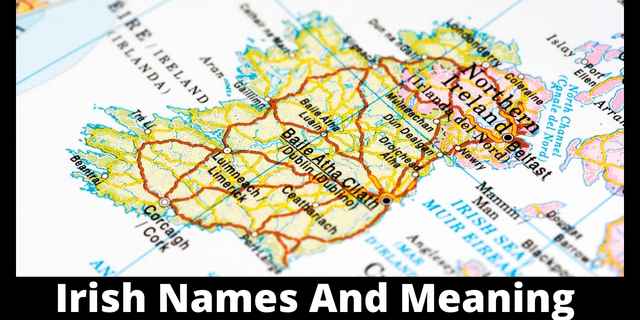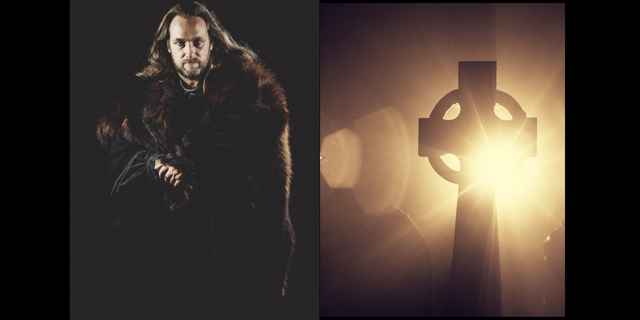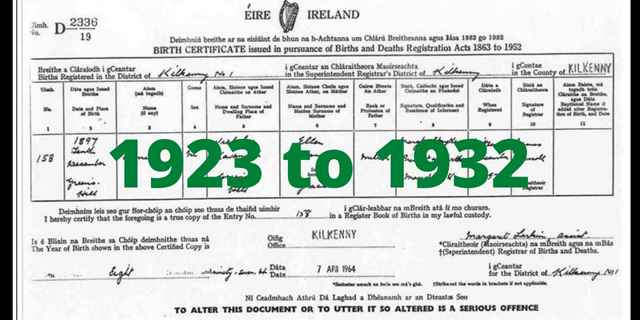Are you interested in the origins and meaning of an Irish last name that begins with L?
This article lists Irish surnames that had birth registrations in early 20th century Ireland and also appear in the 2010 American census.
We’ll also give the origins and meanings of the most popular names.
Most Common Irish Surnames Starting With L
Let’s start with Irish names that had at least four hundred births in Ireland between 1923 and 1932.
We’ve also restricted the names to those with at least two thousand bearers in the 2010 U.S. census.
Here is a summary of the numbers. We’ll explain the origins and meanings in the next section.
| Last Name | Irish Births 1923-32 | U.S. Census 2010 |
| Lynch | 4,322 | 117,708 |
| Lyons | 1,670 | 84,516 |
| Long | 937 | 229,374 |
| Lawlor | 889 | 5,729 |
| Leahy | 863 | 11,014 |
| Larkin | 818 | 23,578 |
| Leonard | 779 | 91,475 |
| Lennon | 600 | 10,720 |
| Lane | 572 | 134,227 |
| Leary | 462 | 15,505 |
| Lonergan | 403 | 3,713 |
Why take Irish birth registrations from 1923 to 1932?
The second column is the number of Irish birth registrations over ten years starting in 1923.
The reason I chose that start date was that the Republic of Ireland was established the previous year. Starting in 1923 excluded birth locations in Northern Ireland.
Otherwise, I would have a lot of work filtering out English and Scottish names for this list.
Names in the U.S. census
Bear in mind that many names have different origins and are from different regions.
So, one Long family may be the descendants of Irish ancestors and have one meaning. But other families may descend from English ancestors with different origins.
Origins And Meanings Of Irish Surnames Starting With L

Let’s run through the origins and meanings of these top names.
Lynch
This is an Anglicized form of the Gaelic name Ó Loingsigh. I explain “Anglicization” more fully in a later section.
Here, I’ll simply say that it’s a way of taking an old Gaelic surname and turning it into a name that sounds or seems English.
The “Ó” in Ó Loingsigh means “descendant of”, so this name means the descendant of Loingseach.
So, what does Loingseach mean? The meaning comes from the Irish word for a ship (long). The personal name refers to a mariner i.e someone who travels or works on a ship.
There were several prominent clans with this name in different parts of Ireland.
Some were chiefs of what is now County Cavan. Others were prominent in County Antrim and Down, until their lands were seized after the Anglo-Norman Invasion of 1169.
There were O’Loingsighs in Thomond (Munster) and in Cork.
The name is now very common across the country.
Lyon
This is an Anglicized form for the similar-sounding Gaelic name O Laighin, or descendant of Laighean.
The meaning comes from the Irish word for a spear.

Long
This is one of those names that arose in different regions around the world.
Families in the United States may descend from ancestors in England or from across Europe. There is also a Chines form of the name.
The Irish name is a variant of Langan. These names are Anglicized from the Gaelic name O Longáin, or descendant of Longan.
We’ve already met the Irish word long, which refers to a boat or a ship.
Lawlor
This is a variant of Lawler, which is more common in the United States census of 2010.
They are an Anglicized form of the Gaelic name Ó Leathlobhair, or descendant of Leathlobhar.
The meaning comes from the Irish words for a half (leath) and leprous (lobar). Yeah, it refers to someone who has a poor constitution (but isn’t actually dead).
Leahy
This is an Anglicized form of the Gaelic name Ó Laochdha, or descendant of Laochdha.
The Irish word laoch refers to a hero and laochda means heroic.

Larkin
This is an Anglicized form of the Gaelic name Ó Lorcáin, or descendant of Lorcán.
The meaning comes from the Irish word lorc, which means fierce.
Lennon
The English name has different origins from the Irish name in older times.
It’s a variant of Lennon, which we covered earlier.
Lane
This is another name where the English version has different origins. Not surprisingly, the early English bearers lived on a narrow road.
Interestingly, early bearers in Ireland took the name as an Anglicized version of several similar-sounding Gaelic names.
We’ve already seen Ó Laighin, which was sometimes changed to Lyons but could also be adapted to Lane.
There is also the Gaelic name Ó Luain, or descendant of Luan. The meaning comes from the Irish word for a warrior.
This could also be Anglicized as O’Loan.
Leary
This is an Anglicized form of the Gaelic name Ó Laoghaire, or descendant of Laoghaire.
The name here has dropped the “O”, but the variant of O’Leary is more common now in Ireland.
The meaning comes from the Irish term for the keeper of the calves.
Lonergan
This is an Anglicized form of the Gaelic name Ó Longargáin, or descendant of Longargán
The meaning comes from the Irish words for strong (lonn) and fierce (garg).
Keating is interesting because it ultimately derives from an Anglo-Norman name that arrived into Ireland with the Norman Invasion.
Rev. Patrick Woulfe’s book on 1923 is one of our sources for the origins of names. Father Woulfe was understandably interested when a name was important in clerical history.
He tells us that the Lonergan families across Ireland produced several distinguished clergymen:
- three Archbishops of Cashel in the 12th and 13th century
- two Bishops of Killaloe
- one Bishop of Cloyne
Not a bad haul!

More About The Anglicization Of Irish Surnames
You’ll find it easier to understand how Irish families changed their names with a bit more background.
The use of surnames in Ireland dates back to the tenth century. Children adopted the first name of their father and prefixed it with “Mac” or “O”, which means “son” and “descendent of”.
These names were in the Gaelic language.
In later centuries when Ireland was under British rule, the use of the Gaelic language was curbed.
This led to the Irish making their names look and sound more English i.e. Anglicization.
The simplest way was to drop the O and Mac in front of a name.
Another way was to pick the nearest sounding English name.
The third way was to pick an English name that has the same meaning as the Gaelic name. The two names may sound completely different.
Other Irish Last Names From 1923 To 1932
We’ve covered the meanings and origins of the most common names in Ireland through the 1920s.
Here are the other names. Remember that many of these names were brought to America from different regions where they had different meanings.

From two hundred to four hundred births
| Last Name | Irish Births 1923-32 | US Census 2010 |
| Lydon | 373 | 4,091 |
| Loftus | 359 | 8,166 |
| Lacey | 357 | 18,691 |
| Lally | 297 | 5,808 |
| Lucey | 294 | 2,829 |
| Lawler | 272 | 14,387 |
| Loughlin | 255 | 3,309 |
| Lenihan | 247 | 2,128 |
| Looney | 230 | 12,910 |
| Langan | 215 | 4,982 |
| Leavy | 202 | 2,138 |
From one hundred to two hundred births
| Last Name | Irish Births 1923-32 | US Census 2010 |
| Lewis | 199 | 531,781 |
| Lowry | 199 | 24,895 |
| Leddy | 167 | 2,793 |
| Lanigan | 160 | 2,596 |
| Little | 157 | 105,936 |
| Lynn | 153 | 37,644 |
| Lindsay | 130 | 33,255 |
| Logan | 128 | 67,909 |
| Lafferty | 122 | 10,373 |
| Loughran | 122 | 2,937 |
| Liston | 117 | 4,888 |
| Lillis | 117 | 2,208 |
| Leech | 107 | 5,099 |
Over twenty births
| Last Name | Irish Births 1923-32 |
| Logue | 94 |
| Landy | 90 |
| Lannon | 66 |
| Lavery | 60 |
| Lamb | 54 |
| Lenahan | 44 |
| Lord | 37 |
| Lucy | 35 |
| Lawson | 29 |
| Laverty | 25 |
| Lough | 24 |
Sources
- Irish Civil Birth Registrations
- Irish Names and Surnames by Reverend Patrick Woulfe